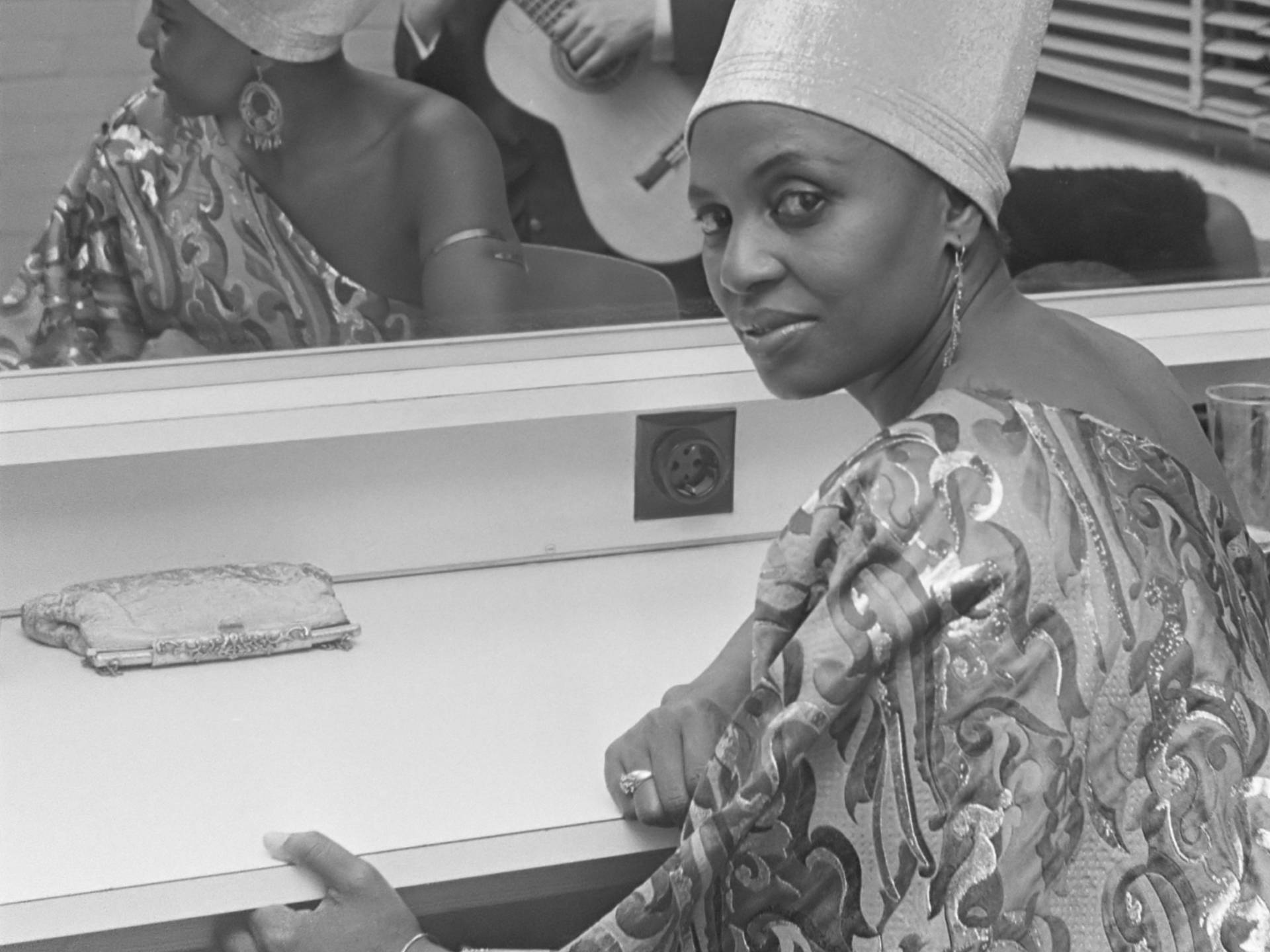
Galerie

Grand Gala du Disque Populaire in Congrescentrum. Miriam Makeba *7 maart 1969
Book
Saturday
06 june 2020
20h00
- Grande Salle
- Carte soliste
- Carte tandem
- Carte jeune
Sunday
07 june 2020
15h00
- Grande Salle
- Carte soliste
- Carte tandem
- Carte tribu
Tuesday
09 june 2020
20h00
- Grande Salle
- Carte soliste
- Carte tandem
- Carte jeune
Wednesday
10 june 2020
20h00
- Grande Salle
- Carte soliste
- Carte tandem
Thursday
11 june 2020
20h00
- Grande Salle
- Carte soliste
- Carte tandem
- Carte jeune
Friday
12 june 2020
20h00
- Grande Salle
- Carte soliste
- Carte tandem
- Carte tribu
Saturday
13 june 2020
20h00
- Grande Salle
- Carte soliste
- Carte tandem
Sunday
14 june 2020
15h00
- Grande Salle
- Carte soliste
- Carte tandem
- Carte jeune
Due to her family environment, the Malian singer Rokia Traoré grew up in a world combining tradition and modernity. Her father played the saxophone, her sisters sung traditional songs during family ceremonies, and she soaked up jazz, blues and all the music that was part of the 70s and 80s. Although she lived in Europe, spending much time in France in the 1990s, she chose to settle in Bamako in 2009. Drawing on the art of Malian griots, Rokia Traoré started to combine Mandinka music and Western influences in her writing. Her talent did not go unnoticed, and working with the renowned singer and musician Ali Farka Touré, she recorded her first album in 1998 under his artistic direction. Four albums followed, as well as numerous collaborations with Eric Truffaz, Alexandre Tharaud, Ibrahim Maalouf… Apart from her concerts, she worked in theatre, at the Avignon Festival and under Peter Sellars. Her fame grew, and she became one of the leading female voices in Africa, alongside Angelique Kidjo and Asa. She now fills up the largest venues, all the while continuing to draw on the roots of the culture of the Mali Empire. In 2005, Rokia Traoré took her exceptional voice to an American audience performing in a show dedicated to the legendary Billie Holiday, one of her main influences. With Il était une fois, une rose de fer…, Rokia Traoré pays tribute to the legendary South African singer Miriam Makeba.
The lady who had been nicknamed “Mama Africa” became famous worldwide in 1967 with her song “Pata Pata” (covered in French in 1980 by Sylvie Vartan under the title “Tape Tape”). Miriam Makeba (1932-2008), born in Johannesburg, South Africa, was a figure in the struggle against apartheid, with her participation in the film Come Back to Africa causing her to be stripped of her nationality by the South African government. Her marriage to Stokely Carmichael, one of the (contested) leaders of the American Black Panthers, and their commitment to civil rights led them into trouble with the American justice system, and forced them into exile in Guinea. In 1965, she was the first black woman to win a Grammy Award for the album An Evening with Belafonte/Makeba. It was not until the 1990s that she returned to her native South African soil, at the request of Nelson Mandela.